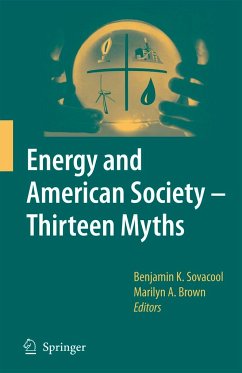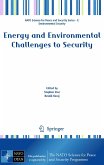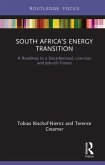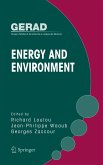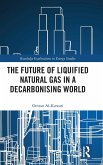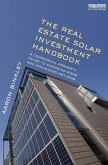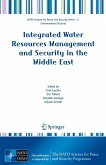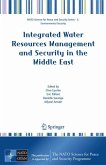Current events related to energy policy - skyrocketing gasoline prices, the 2003 Northeast Blackout, the Kyoto Protocol's enactment, passage of the Energy Policy Act of 2005, and the influence of recent Gulf Coast hurricanes on energy supplies and prices - demand innovative approaches towards conceptualizing the relationship between energy and American society.
This book takes on a central quandary in the study of energy and environmental policy: What myths continue to exist in American culture concerning energy, the environment, and society? It enrolls twenty-four of the nation's top experts working on energy policy in industry, government laboratories, utilities, nonprofit organizations, and universities to debunk and contextualize thirteen energy myths relating to electric power, renewable energy, energy efficiency, transportation, and climate change.
While the book focuses on the American experience, it will be of interest to those working in the fields of energy policy, energy and the environment, and technology assessment worldwide.
'This is a brilliant, bold, and fascinating book ...that should be read by anybody even remotely concerned about energy, the environment, or the future of American society.'
Art Rosenfeld, Commissioner, California Energy Commission and recipient of the 2006 Enrico Fermi Award
'...This work is a must-read for anyone interested in American energypolicy.'
Kateri Callahan, President, Alliance to Save Energy
'...By collecting the best minds to debunk the greatest of these myths, Sovacool and Brown have brought us a step closer to finding a national energy policy based on common sense.'
Chris Cooper, Executive Director, Network for New Energy Choices
'... Sovacool and Brown provide a bold and imaginative way forward.'
John A. "Skip" Laitner, Visiting Fellow and Senior Economist, American Council for an Energy-Efficient Economy
This book takes on a central quandary in the study of energy and environmental policy: What myths continue to exist in American culture concerning energy, the environment, and society? It enrolls twenty-four of the nation's top experts working on energy policy in industry, government laboratories, utilities, nonprofit organizations, and universities to debunk and contextualize thirteen energy myths relating to electric power, renewable energy, energy efficiency, transportation, and climate change.
While the book focuses on the American experience, it will be of interest to those working in the fields of energy policy, energy and the environment, and technology assessment worldwide.
'This is a brilliant, bold, and fascinating book ...that should be read by anybody even remotely concerned about energy, the environment, or the future of American society.'
Art Rosenfeld, Commissioner, California Energy Commission and recipient of the 2006 Enrico Fermi Award
'...This work is a must-read for anyone interested in American energypolicy.'
Kateri Callahan, President, Alliance to Save Energy
'...By collecting the best minds to debunk the greatest of these myths, Sovacool and Brown have brought us a step closer to finding a national energy policy based on common sense.'
Chris Cooper, Executive Director, Network for New Energy Choices
'... Sovacool and Brown provide a bold and imaginative way forward.'
John A. "Skip" Laitner, Visiting Fellow and Senior Economist, American Council for an Energy-Efficient Economy
From the reviews:
'This is a brilliant, bold, and fascinating book. It is a work of stunning originality, combining traditional policy analysis with sociology, history, and philosophy to create a rich, textured account of the interactions between energy, culture, and technology. At a period of growing consumption and constrained energy supply in the United States, especially important are chapters assessing the remaining potential, reliability, and profuse benefits of energy efficiency practices and programs. It is a work that should be read by anybody even remotely concerned about energy, the environment, or the future of American society.'
(Art Rosenfeld, Commissioner, California Energy Commission and recipient of the 2006 Enrico Fermi Award)
'While the diffuse energy challenges facing the country have never been so great, this book sheds important insight into how many of them might be managed and resolved.The myths debunked in this volume continue to complicate energy policy decisions and confound analysts, consumers, and politicians.This work is a must-read for anyone interested in American energy policy.'
(Kateri Callahan, President, Alliance to Save Energy)
'For too long, U.S. energy policy has been directed by a series of canards so often repeated that they pass for common knowledge. By collecting the best minds to debunk the greatest of these myths, Sovacool and Brown have brought us a step closer to finding a national energy policy based on common sense.'
(Chris Cooper, Executive Director, Network for New Energy Choices)
'Any thoughtful observer of U.S. energy production and consumption patterns might readily conclude that current energy policy has been driven more by myth and assumption than by even-handed assessment. As we work and build for the future - indeed, if we take seriously ourresponsibility to the future - our deliberations about smart energy policy must follow from a conscious and informed dialogue. Sovacool and Brown provide a bold and imaginative way forward.'
(John A. "Skip" Laitner, Visiting Fellow and Senior Economist, American Council for an Energy-Efficient Economy)
"Considering how crucial solving our energy dilemmas will be to the nation's future well-being, it would seem troubling how little consensus there is on basic elements in our energy policy. Benjamin K. Sovacool and Marilyn A. Brown take a step to address this matter with Energy and American Society: Thirteen Myths, new from Springer, in which the editors reach out to a broad range of policy experts to explode some of these misconceptions ... . it tackles topics on a variety of issues." (The Electricity Journal, Vol. 20 (5), 2007)
"This book offers a valuable debunking of the various controversies surrounding energy policy ... . The individual essay authors are experts from various energy-related disciplines and have picked 13 myths to discuss. ... Summing Up: Highly recommended. All levels." (J. C. Comer, Choice, Vol. 45 (1), 2007)
"The contributing authors, prominent scholars and practitioners succeed in varying degrees in exposing the myths and replacing them with the truths. The effect is rewarding to both technical and non-technical audiences since the book is written in plain English and is easily digested by anyone with a rudimentary background or interest in energy economics." (Fereidoon P. Sioshansi, Energy Policy, Vol. 35 (12), 2007)
"Benjamin K. Sovacool and Marilyn A. Brown, using a similar pedagogic device, have developed a list of thirteen of their own myths ... . My wish is that this fine book would be more available to and more appealing to a wider audience. Its messages are too important ... . The material on the Thirteen Myths deserves ... a wide audience, an audience that is out there, interested,motivated, and-armed with the information in this book-capable of driving change." (Martin J. Pasqualetti, Annals of the Association of American Geographers, Vol. 98 (2), 2008)
"Marilyn Brown and Benjamin Sovacool have done an excellent job of assembling a group of very qualified coauthors to produce this anthology of essays on energy and society in America. ... For those wanting to explore the depths of energy illiteracy in America with definitive, detailed, and well-documented analysis, this book is a must read. From my own perspective, I really appreciate the range and depth of the topics covered along with the high quality of the writing." (Jeff Tester, Technology and Culture, Vol. 50, April, 2009)
'This is a brilliant, bold, and fascinating book. It is a work of stunning originality, combining traditional policy analysis with sociology, history, and philosophy to create a rich, textured account of the interactions between energy, culture, and technology. At a period of growing consumption and constrained energy supply in the United States, especially important are chapters assessing the remaining potential, reliability, and profuse benefits of energy efficiency practices and programs. It is a work that should be read by anybody even remotely concerned about energy, the environment, or the future of American society.'
(Art Rosenfeld, Commissioner, California Energy Commission and recipient of the 2006 Enrico Fermi Award)
'While the diffuse energy challenges facing the country have never been so great, this book sheds important insight into how many of them might be managed and resolved.The myths debunked in this volume continue to complicate energy policy decisions and confound analysts, consumers, and politicians.This work is a must-read for anyone interested in American energy policy.'
(Kateri Callahan, President, Alliance to Save Energy)
'For too long, U.S. energy policy has been directed by a series of canards so often repeated that they pass for common knowledge. By collecting the best minds to debunk the greatest of these myths, Sovacool and Brown have brought us a step closer to finding a national energy policy based on common sense.'
(Chris Cooper, Executive Director, Network for New Energy Choices)
'Any thoughtful observer of U.S. energy production and consumption patterns might readily conclude that current energy policy has been driven more by myth and assumption than by even-handed assessment. As we work and build for the future - indeed, if we take seriously ourresponsibility to the future - our deliberations about smart energy policy must follow from a conscious and informed dialogue. Sovacool and Brown provide a bold and imaginative way forward.'
(John A. "Skip" Laitner, Visiting Fellow and Senior Economist, American Council for an Energy-Efficient Economy)
"Considering how crucial solving our energy dilemmas will be to the nation's future well-being, it would seem troubling how little consensus there is on basic elements in our energy policy. Benjamin K. Sovacool and Marilyn A. Brown take a step to address this matter with Energy and American Society: Thirteen Myths, new from Springer, in which the editors reach out to a broad range of policy experts to explode some of these misconceptions ... . it tackles topics on a variety of issues." (The Electricity Journal, Vol. 20 (5), 2007)
"This book offers a valuable debunking of the various controversies surrounding energy policy ... . The individual essay authors are experts from various energy-related disciplines and have picked 13 myths to discuss. ... Summing Up: Highly recommended. All levels." (J. C. Comer, Choice, Vol. 45 (1), 2007)
"The contributing authors, prominent scholars and practitioners succeed in varying degrees in exposing the myths and replacing them with the truths. The effect is rewarding to both technical and non-technical audiences since the book is written in plain English and is easily digested by anyone with a rudimentary background or interest in energy economics." (Fereidoon P. Sioshansi, Energy Policy, Vol. 35 (12), 2007)
"Benjamin K. Sovacool and Marilyn A. Brown, using a similar pedagogic device, have developed a list of thirteen of their own myths ... . My wish is that this fine book would be more available to and more appealing to a wider audience. Its messages are too important ... . The material on the Thirteen Myths deserves ... a wide audience, an audience that is out there, interested,motivated, and-armed with the information in this book-capable of driving change." (Martin J. Pasqualetti, Annals of the Association of American Geographers, Vol. 98 (2), 2008)
"Marilyn Brown and Benjamin Sovacool have done an excellent job of assembling a group of very qualified coauthors to produce this anthology of essays on energy and society in America. ... For those wanting to explore the depths of energy illiteracy in America with definitive, detailed, and well-documented analysis, this book is a must read. From my own perspective, I really appreciate the range and depth of the topics covered along with the high quality of the writing." (Jeff Tester, Technology and Culture, Vol. 50, April, 2009)

